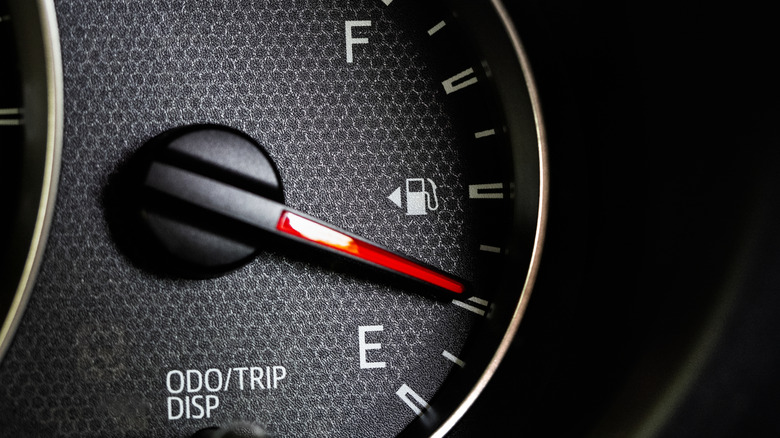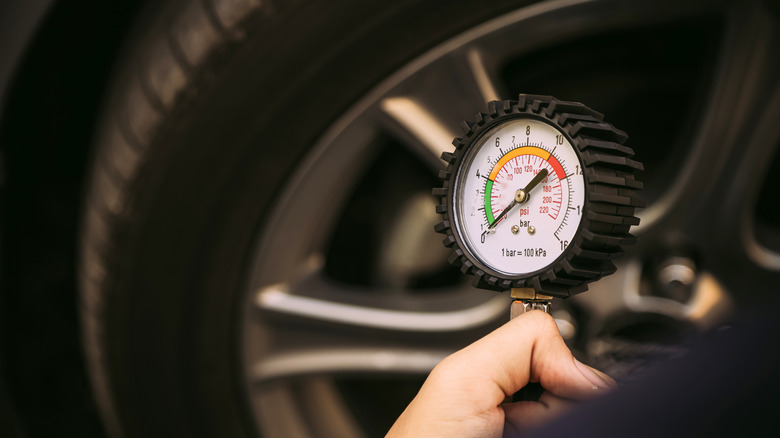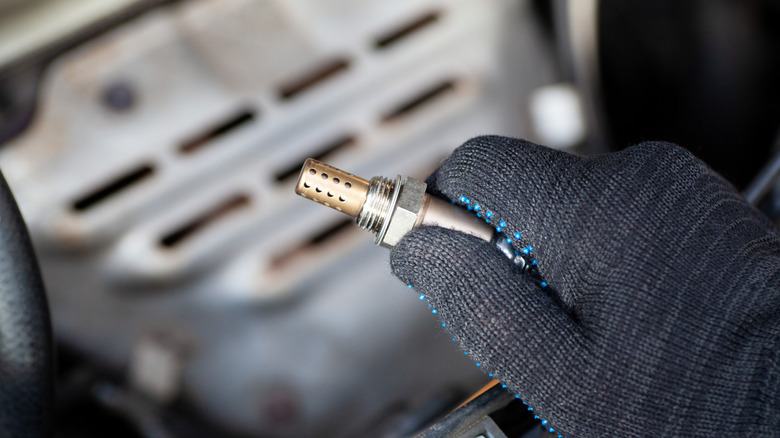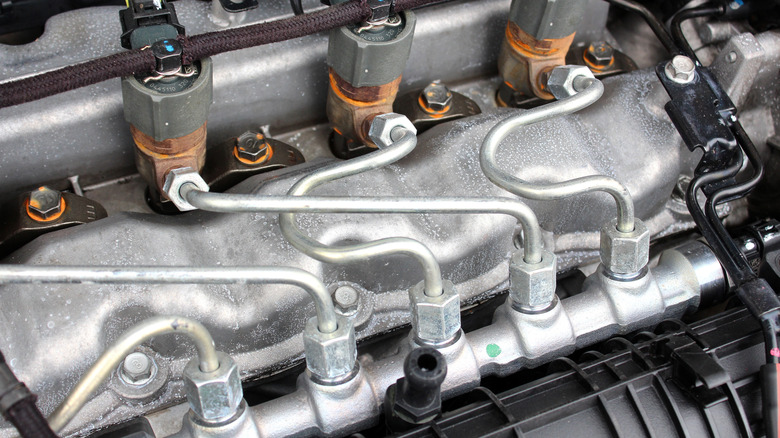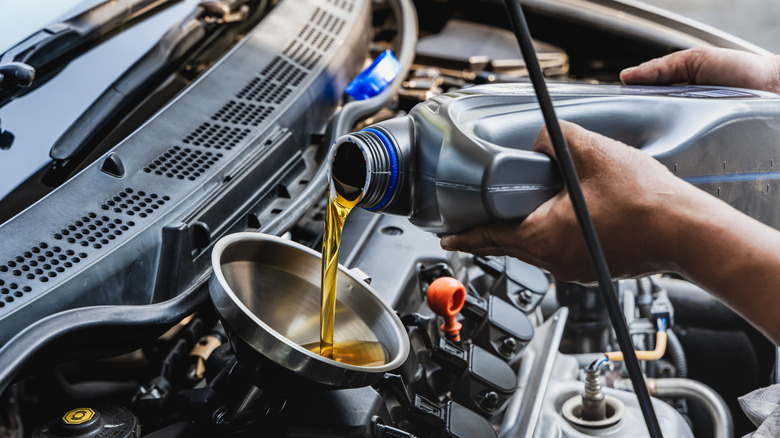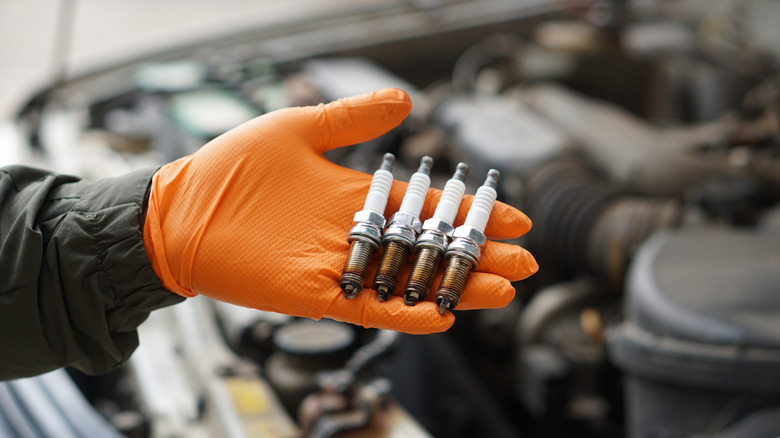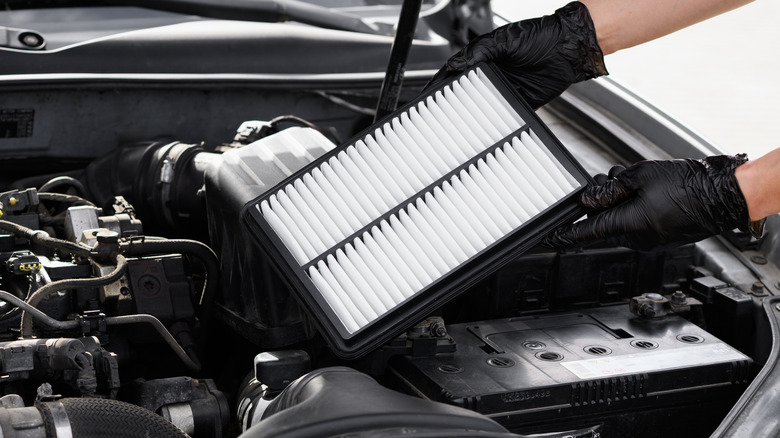7 Reasons Why Your Vehicle's MPG Is Going Down
Are you finding yourself stopping at the gas station more often than usual? Even if you've invested in one of the most fuel-efficient cars ever made, a sudden increase in fuel consumption can be frustrating and costly. The AAA currently lists the average price of a gallon of gas at about $3.12, and the typical driver puts about 15,000 miles on their car each year. If your fuel economy dips from 27 to 25 miles per gallon, you'll spend nearly $150 more on gas over the course of a year.
Having owned a Ford Focus SE for nearly a decade, I've encountered this issue firsthand. Over time, I noticed my MPG gradually declining, even though my driving habits remained unchanged. In my experience, poor gas mileage often stems from factors that many drivers overlook, and maintaining optimal fuel efficiency becomes more challenging. However, it's not just due to wear and tear.
While it's tempting to blame your car's age for declining fuel efficiency, the reality is that neglecting regular upkeep plays an important role. Following your manufacturer's recommended service schedule can help you enjoy consistent fuel efficiency throughout the car's lifespan and save money in the long run. In addition, certain modifications can boost your vehicle's MPG even further. But what might be behind a sudden dip in fuel economy, and what can you do about it?
Driving habits affect fuel mileage
Your driving habits can damage your car and impact its fuel efficiency. Rapid acceleration and hard braking are tough on your engine, transmission, suspension, spine, and wallet. Driving aggressively can reduce gas mileage by up to 30% on highways and as much as 40% in heavy traffic, according to the U.S. Department of Energy. Prolonged idling also hurts fuel efficiency, as the car continues to burn fuel while stationary.
There are a few ways to use less gas while driving, including reducing weight and consolidating trips. One important tactic is to accelerate and brake as smoothly as possible, which have the added bonus of making your car last longer. Maintaining a steady speed on the highway can also make a noticeable difference in MPG over time and help maximize engine life. You should also avoid excessive idling. For instance, if you expect to be in one spot for more than about a minute, it's worth turning off your engine, especially when the air conditioning isn't needed.
Tire pressure and wheel alignment also affect fuel economy
Tire pressure is an important factor in a car's fuel efficiency, with as much as 20-30% of fuel consumption being tire-related. Simply driving on under-inflated tires can cause up to a 10% reduction in fuel economy. This is due to the added rolling resistance that under-inflated tires create, which in turn forces your engine to work harder to keep the vehicle moving. The Department of Energy says under-inflated tires reduce fuel efficiency by 0.3 % per tire for every pound per square inch below optimal pressure. Keeping your tires properly inflated not only boosts MPG, but preserves tire life and helps you drive more safely.
Many modern vehicles come with a Tire Pressure Monitoring System (TPMS), which alerts drivers when tire pressure drops. However, these warnings often only trigger after a substantial loss of pressure in the tires. Tire pressure gauges are inexpensive and can be purchased at any auto parts store. We strongly recommend picking one up for each of your vehicles and checking your tire pressure manually each time you fill your fuel tank.
Alignment is another often-overlooked factor that can significantly affect fuel consumption. Wheels that aren't properly aligned increase rolling resistance as your vehicle struggles to maintain a straight path. If your steering wheel feels off-center or your car drifts to one side, your wheels may be misaligned.
Malfunctioning sensors can hurt fuel mileage
While older cars relied on carburetors to mix fuel with air, nearly all modern vehicles use some form of electronic fuel injection. These systems use computers and sensors to regulate the fuel/air mixture. One of the most important sensors is the oxygen (O2) sensor, which monitors exhaust gases. It determines whether the air-fuel mixture is too rich or too lean and sends real-time information to the car's computer, which then adjusts fuel delivery to maintain efficiency. When the O2 sensor becomes damaged or clogged, it will throw the computer off, and could make your engine burn excessive amounts of fuel. A malfunctioning O2 sensor should trigger a check engine light and can potentially decrease the MPG by 15%.Your O2 sensor should be replaced regularly; check your owner's manual or call your dealership's service department for the replacement interval for your car.
The mass flow (MAF) sensor is another component that helps optimize your engine's fuel/air ratio. It is positioned between the engine's intake manifold and the air filter, and measures the volume of air entering the engine. Like the O2 sensor, the MAF communicates with the car's onboard computer to regulate fuel injection. Malfunctions with the MAF can also lead to inaccurate calculations and decreased gas mileage or erratic engine performance.
Dirty or damaged injectors or fuel filters are a problem
Fuel injectors spray fuel into an engine's cylinders. When injectors become clogged or dirty, their spray pattern may become inconsistent; similar to how a shower head with mineral buildup disperses water unevenly. This can lead to incomplete combustion, reduced performance, and lower MPG. In addition, damaged fuel injectors can leak, which can waste gas while disrupting the air-fuel mixture even further. In some cases, cleaning your fuel injectors may resolve the issue. But if damage is causing the malfunction, you may need to replace the injector to restore fuel efficiency.
Further up the line, your fuel filter is your engine's first line of defense against contaminants. A clogged fuel filter will obstruct fuel flow and can negatively impact MPG. It can also put additional strain on the fuel pump, leading to premature failure of this important component. For most vehicles, it is recommended to replace the fuel filter every 30,000 miles or every two years.
You might be using the wrong engine oil
Oil keeps your engine operating efficiently by reducing friction between moving parts, which prevents wear and tear. Motor oil is classified by composition and viscosity, or how easily it flows. Neglecting regular oil changes can force the engine to work harder, compromising your vehicle's performance and affecting fuel economy. To maintain your engine's optimal MPG, use the type and weight of oil recommended by the manufacturer.
The best sources for the correct oil for your car are the owner's manual and dealership service department. While older vehicles will run just fine on a conventional oil or synthetic blend, it's recommended to use a synthetic oil for most modern or high-performance cars. Using a thicker (higher viscosity) oil than recommended might help mask some small oil leaks in your engine, but will make your engine work harder with each revolution. A thinner (or lighter) oil than the manufacturer recommends might not provide adequate protection for your engine's internal components.
Worn piston rings or bad spark plugs will hurt fuel mileage
Piston rings maintain the engine's compression by creating a tight seal between each piston and its cylinder wall. When the rings become worn, they fail to maintain this seal. This makes the engine work harder to compensate for the pressure loss, which leads to noticeable drops in MPG and engine performance.
Similarly, the ignition system — which includes spark plugs, wires, and ignition coils — ensures efficient fuel combustion. Spark plugs ignite the air-fuel mixture in the cylinders to drive each piston. If the spark plugs are worn or malfunctioning, they may fail to ignite the mix properly. This can lead to engine misfires, which waste fuel and can reduce gas mileage. Besides lowering your MPG, unburned fuel exiting the combustion chamber can damage the catalytic converters. Here are a few ways to tell if you have bad spark plugs. As with other components, check your owner's manual or call your dealership's service department to identify the right plugs and gap setting for your engine.
A dirty air filter will reduce fuel mileage
Your engine relies on a steady intake of air to function efficiently. This air mixes with fuel during combustion to produce the energy needed to power your vehicle. When the engine air filter becomes dirty or clogged it restricts airflow. This leaves the engine unable to breathe properly, forcing it to work harder and consume more fuel to run properly.
On older carbureted engines, a clogged air filter will often result in an immediate and noticeable decrease in performance. On a fuel-injected engine, the computer will compensate for restricted air flow by delivering an excess amount of fuel to the cylinders. This could throw your emissions out of spec and light your check engine light, although you might just notice a loss of performance and fuel economy.
Changing the air filter regularly improves airflow to the engine and can help maximize fuel efficiency. You should replace your engine air filter typically after each 15,000 to 30,000 miles, depending on your vehicle and driving conditions. Refer to your owner's manual for guidance, and consider having the air filter inspected during routine maintenance such as oil changes.
